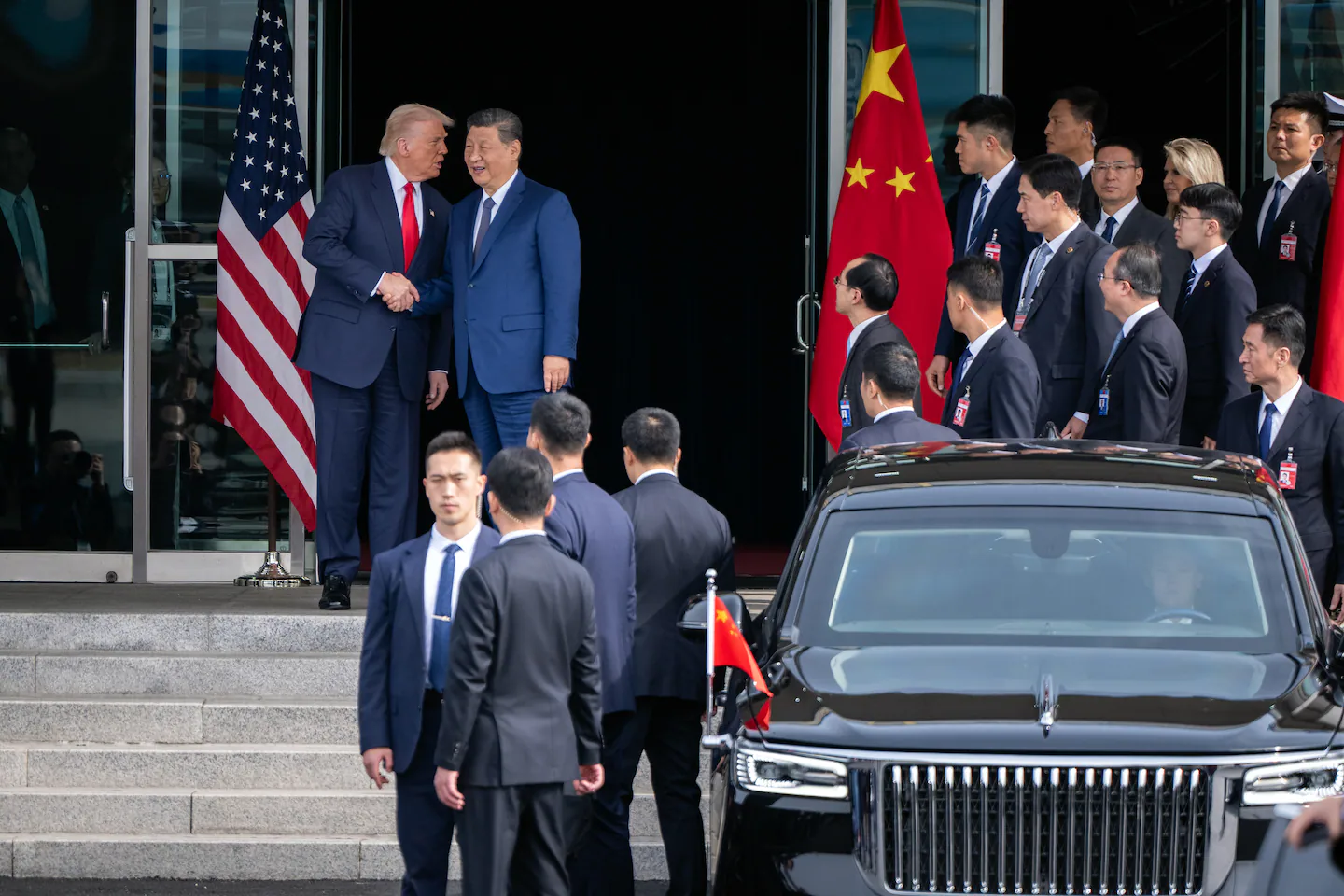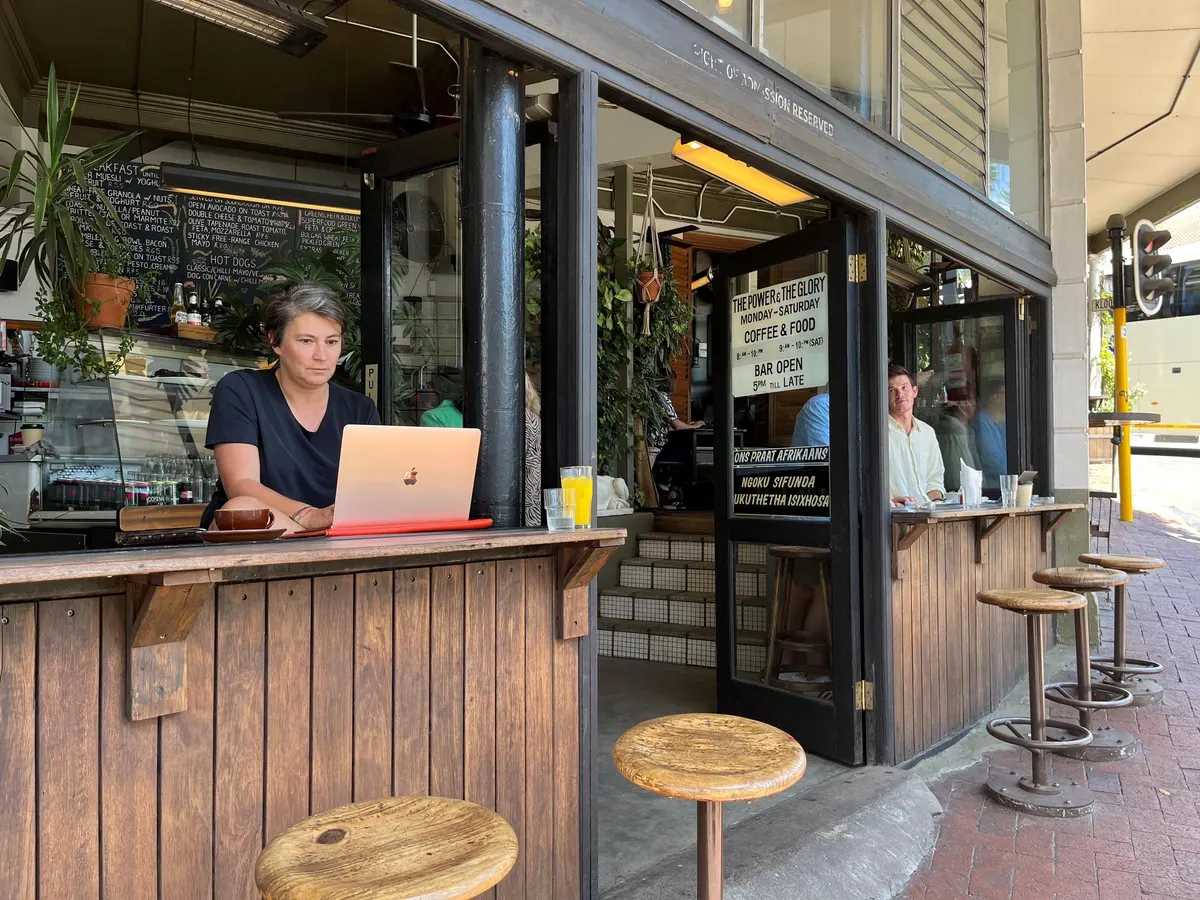Copyright The Boston Globe

He met with Prime Minister Mark Carney, recently spurned by Trump, and invited him to visit China. He even had what sounded like a candid meeting with Japan’s new leader, Sanae Takaichi, an outspoken critic of China, who appeared to show the limits of Xi’s outreach. Earlier, in a speech at the opening of the summit, Xi called for the strengthening of industrial supply chains, making a veiled criticism of attempts by the West to shift factories away from a dependence on China. He said China would “adhere to the principle of ‘joining hands’ rather than ‘letting go,’ and ‘extending chains’ rather than ‘breaking chains.’” In a separate speech to business leaders that was read out by a Chinese representative, Xi also took an indirect swipe at the United States, saying APEC economies should “oppose protectionism, resist unilateral bullying, and prevent the world from returning to the law of the jungle.” That appeal for solidarity, however, was somewhat undercut by China’s recent actions. In October, China proposed sweeping new export controls on rare earth minerals that would have given Beijing extraordinary power over other nations. China dominates about 90 percent of the world’s supply of minerals, which are vital for the production of virtually all modern technologies like semiconductors, batteries, and jets. China had introduced those rare-earth controls in response to US trade measures, but the moves drew alarm from other countries. Xi was arriving at the regional summit on something of a diplomatic high, a day after talks with Trump that resulted in a truce, and, importantly, China had agreed to put on hold the new export controls on rare earths. Trump left the talks almost effusive with praise for Xi, effectively bolstering Xi’s argument that he is a steady hand seeking stability. On Friday, though, Xi may have met a more openly critical interlocutor in Japan’s new prime minister. Takaichi told reporters that she raised Japan’s concerns about the export controls on rare earths, territorial disputes in the East China Sea, and the detention of Japanese nationals in China on espionage charges. She said she had expressed “serious concerns” about China’s militarization of the South China Sea and about human rights abuses in Hong Kong and the Xinjiang region. “It is true that there are outstanding issues and differences of opinion,” Takaichi said, “but that is why it is important that we speak directly and frankly.” Dylan Loh, an associate professor of public policy and global affairs at Nanyang Technological University in Singapore, said that China’s rare earth controls were “an exercise of geopolitical leverage in the context of the US-China economic conflict, which will have not gone unnoticed.” Song Guoyou, an expert on US-China economic relations at Fudan University in Shanghai, defended China’s rare earths export regime as a necessary response to US tariffs on China and restrictions on American technology. “These actions have destabilized the regional flow of trade and production,” Song said. “This is precisely why China is calling for joint efforts to maintain the stability and smooth operation of these chains.” Xi’s remarks on supply chains, Song continued, were a way to urge governments not to follow in the United States’ footsteps in using tariffs, imposing export restrictions, and making excessive appeals for national economic security. “Was the stability of the rare earth supply chain a concern for most regional members before?” Song said. “Clearly not. So when did it become an issue? It arose after the United States continuously imposed trade suppression and export controls on China.” Xi’s meeting with Trump on Thursday in Busan, a city roughly 50 miles south of Gyeongju, resulted in a reduction in some US tariffs on Chinese goods, a suspension of port fees on Chinese ships, and the delay of US export controls that would have prevented more Chinese companies from acquiring American technology. In return, China agreed to restart purchases of American soybeans and pause its new export controls on rare earths. The United States said China also agreed to do more to curb the flow of precursor chemicals used in making fentanyl. Many regional countries find themselves caught between the demands of Washington and Beijing. Their best bet is often to improve ties with both sides in the hopes of extracting more benefits, analysts said. In just the last week, Trump signed trade deals with Thailand, Cambodia, Vietnam, and Malaysia, while China enhanced its trade pact with a Southeast Asian group of 11 countries. “It’s a question of Southeast Asian countries doing what they always do: Make whatever accommodations are needed to ensure robust relations with both the United States and China,” said Stephen Olson, a former US trade negotiator who is now a senior fellow at the ISEAS-Yusof Ishak Institute in Singapore.



